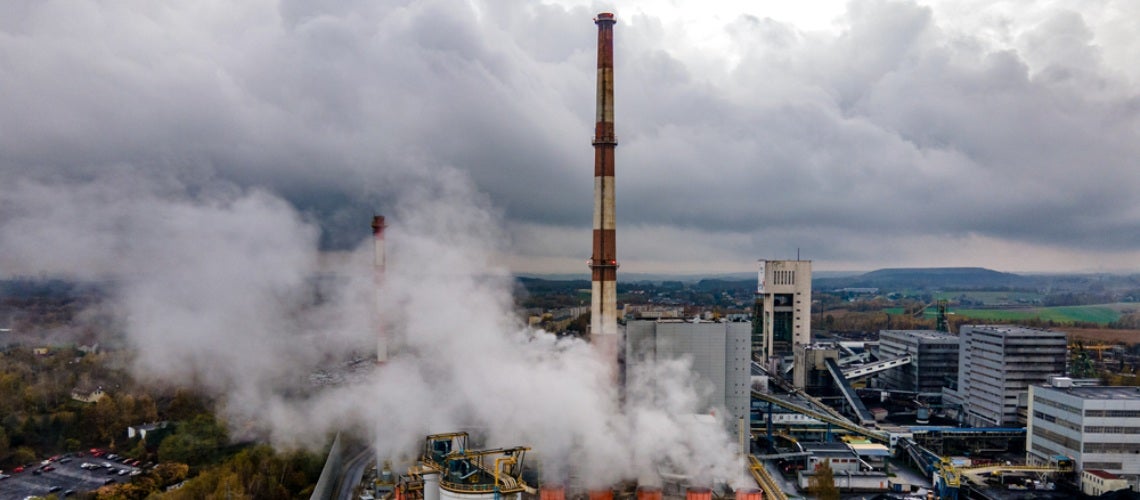 The green transition will lead to job losses in industries such as coal, but new employment opportunities will also arise. Copyright: Franek/Shutterstock
The green transition will lead to job losses in industries such as coal, but new employment opportunities will also arise. Copyright: Franek/Shutterstock
Climate change and natural resource degradation are prompting a paradigm shift in how we produce, consume, and trade. In this transition, jobs will be lost or reconfigured, and new employment opportunities will arise.
Total employment effects may be limited, but impacts are likely concentrated across sectors, occupations, and regions. A sustained green transition must be just, with broad participation in job gains and sufficient compensation for losses and adjustments. Guiding the process will require theories of change and measurement tools for job changes.
Conceptual and empirical work on jobs and the green transition is in the initial stages but rapidly evolving. Recent papers from the Wielkopolska, Silesia and Lower Silesia regions in Poland present a few innovative ways to address some of these questions, in the context of the coal transition. These include a new bottom-up approach to calculate the number of workers indirectly affected by coal mine closures; discrete choice experiments to elicit the preferences of workers affected by coal mine closures with respect to job attributes; and a new AI-powered job matching tool to identify optimal alternative employment opportunities for affected workers.
Complementing these findings, this study from a city in Poland maps community preferences to repurpose mine lands and assets. Other novel work has begun to address the implications of the green transition for jobs in agri-food, combining the outcomes from existing, integrated agricultural assessment models with the insights from the structural transformation using econometric estimates.
Much work remains to be done to better balance the social and environmental trade-offs and broker a just transition. Key steps include determining the number and skill profile of affected workers, conducting more worker preference assessments, identifying job rich alternative investments, testing the effectiveness of transition support schemes, and further developing and operationalizing job matching tools. Building on current work, the World Bank Jobs Group is rapidly expanding its work in this space, initially with a particular focus on three sectors: energy, agri-food, and urban/spatial.
Jobs and the green transition
- Analyzing coal-related labor market challenges in three Polish regions suggests the need for a territorial rather than a sectoral approach. (Christiaensen et al., World Bank, October 2022)
- Looking at a Polish municipality impacted by transition out of coal, this paper looks at affected people’s profiles, job perspectives, and opportunities, finding residents are reluctant to relocate and commute for work. (Honorati, Ferré & Gajderowicz, World Bank, May 2023)
- This study underscores the tremendous potential of increasing agricultural and climate-friendly R&D investment for brokering an environmentally sustainable structural transformation. (Nico & Christiaensen, World Bank, May 2023)
- The focus of this note is on interventions supporting the social and labor transition in Eastern Wielkopolska, rather than the economic, spatial, and energy transformations which are also part of the Just Transition Mechanism (JTM) pillar (Honorati, & Banaszczyk, World Bank, March 2022).
Essential readings
- Employment and business opportunities can be created in EU coal regions by building on the industrial heritage of affected regions and establishing new, competitive industries and services. (Alves Diaz et al., European Union, July 2018)
- Using a semi-supervised machine learning algorithm, this paper presents a methodology to classify skill requirements in online job postings into a pre-existing expert-driven taxonomy of broader skill categories. (Lassébie et al., OECD Social, Employment and Migration Working Papers, November 2021)
- Discrete choice experiments in Germany and the Netherlands found women preferred scheduling flexibility and a company with a good reputation, whereas men preferred jobs with high earnings and a permanent contract. (Valet, Sauer & Tolsma, PLoS ONE, July 2021)
- Aiming for a just coal transition in Spain, governmental measures have included social assistance through early retirement or voluntary redundancies, job banks, and environmental restoration projects. (Instituto para la Transicion Justa, Executive Report, July 2022)
- Recent analysis of US labor markets indicates that green employment is pro-cyclical, highly skilled, commands a 4% wage premium, and is geographically concentrated. (Vona, Marin & Consoli, Journal of Economic Geography, July 2018)
Broader jobs agenda
- European countries can now rely on an extended social safety net to fight poverty and social exclusion with labor and economic tradeoffs. (Ciarini, Girardi & Pulignano, Social Investment and Institutional Change, 2023)
- This book chapter details job quality issues and policy approaches post-pandemic for US workers. (Rubin, Rethinking Work,2023)
- Rapid postsecondary certificates (requiring 6 credits or fewer) do not seem to have lower immediate labor market returns than longer but still short-term certificates (7-36 credits). (Darolia, Guo & Kim, IZA Discussion Paper, April 2023)
- Low-wage workers in the US saw relatively rapid wage growth during the pandemic, reducing the wage premium for college graduates. (Autor, Dube & McGrew, National Bureau of Economic Research Working Paper, March 2023)
This blog is based on the May 2023 edition of the Knowledge4Jobs newsletter, curated by the World Bank’s Jobs Group and Labor and Skills Global Solutions Group. Click here to sign up for the Knowledge4Jobs newsletter.
To receive weekly articles, sign-up here




Join the Conversation